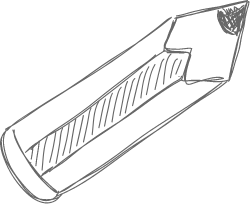Eligible sub-sectors include:
- Plastics & rubber
- Textiles
- Tool and die
- Printing & packaging
- Transportation equipment
- Electronics manufacturing
- Steel fabrication
- Machinery manufacturing
The Canadian manufacturing sector has seen a lot of struggles over the past couple of years – this sector was hit especially hard in the recent recession, and overall between 2001 and 2010, the GDP for the manufacturing industry fell by $21.4 billion. As such, it has become increasingly important that companies in the manufacturing sector continue to take advantage of programs like the Scientific Research and Experimental Development program, which gives companies tax credits to cover time and materials spent on experimentation and development of new and existing products and processes and remain competitive.
With the recent recession, manufacturing companies are struggling across the country. In order to conduct business during these tough economic times, SR&ED has become critical to a manufacturing company’s well-being. Furthermore, with several recent improvements to the SR&ED program, a greater significance is being placed on timely documentation of any SR&ED work conducted. As such, it is crucial that companies identify eligible work early and conduct thorough tracking and documentation of eligible work in order to receive federal compensation.
You May Be Eligible If:
- You have improved or modified a process or product
- You have invested in automation improvements.
- New jigs and fixtures need to be implemented in the production process.
- There are new regulations limiting industrial waste, requiring changes to production.
To see how the experts at NorthBridge can help you with your SR&ED claim, or if you are unsure whether the work you do qualifies for the SR&ED program, or would like a second opinion, feel free to contact us for a free consultation.






